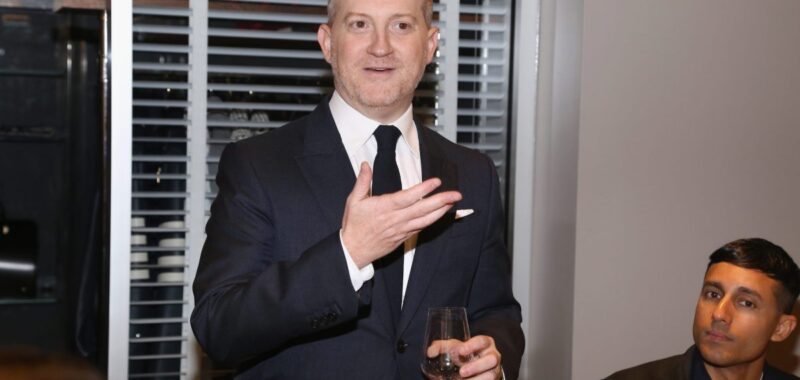
Burberry hasn’t got a lot right in recent years. But its new CEO, Joshua Schulman, wants to act fast and “course correct” to save the ailing British luxury brand.
The London-listed company has been rattled by the luxury downturn affecting the rest of the industry. It’s also had to question its path as the pandemic changed how people thought about luxury goods—particularly in China, where Burberry makes a good chunk of its sales.
On Thursday, Burberry reported a 20% drop in its comparable retail sales for the quarter that ended Sep. 28, while its operating losses have mounted to £41 million in six months. That comes after the group issued profit warnings earlier in the year owing to its struggling Asia business.
Burberry’s shares have nearly halved this year until the market closes on Wednesday.
Despite the plunge in earnings, the markets have reacted positively as Schulman admitted Burberry’s shortcomings and vowed to turn things around.
“Our recent underperformance has stemmed from several factors, including inconsistent brand execution and a lack of focus on our core outerwear category and our core customer segments,” Schulman said on Thursday, announcing a new “Burberry Forward” plan. “Building on our strong foundations, I am confident that Burberry’s best days are ahead.”
Burberry’s shares were up 14.7% as of 10 a.m. London time.
“All eyes will be on Josh Schulman and his strategy to shore up the brand,” Bernstein analyst Luca Solca wrote in a note on Thursday.
Quintessentially British
Schulman, previously the CEO of Michael Kors and who took the top job at Burberry in July, said that among Burberry’s issues was its poor pricing of leather goods, one of its key products along with outerwear.
Burberry is considered among the luxury brands within the average person’s reach. But persistent increases in the price of leather goods priced many customers out at a time when interest rates and inflation were hurting shoppers’ appetites.
That cascaded into the brand’s internal battles to reposition itself as a high-end luxury brand, which culminated in the ousting of former CEO Jonathan Akeroyd.
Burberry’s financial woes led it to get kicked out of the FTSE 100 in September after 15 years. Rumors of a possible takeover by luxury company Moncler began swirling earlier this month, which both companies dismissed.
Of the measures to steer Burberry on a new course, it plans to cut costs by £40 million annually—over half of which will occur in the current fiscal year. The British company is also looking to hit a £3 billion revenue target, although it hasn’t provided a clear timeframe on when it hopes to achieve that.
James Grzinci, an analyst from Jeffries, said that Burberry’s update “bears the scars of a tough demand backdrop, the aspirational gearing of the brand and the unsuccessful attempts at premiumization and expansion of the offering outside its core outwear heritage.”
Still, there’s hope that Schulman’s vision might succeed if Burberry refocuses on its strengths and leans into its quintessential Britishness.
Burberry was always known for checkered outerwear, which shot it to popularity over 100 years ago. However, the company’s attempts at going from mid-market to upmarket within luxury affected how it was perceived in a market where larger competitors like LVMH and Hermes already ruled.
Burberry has seen multiple leadership shuffles in the last decade, and Schulman is its fourth CEO in 10 years.
Daniel Lee, the brand’s creative director, has been trying to bring Burberry’s mojo back by reminding shoppers of its British heritage and highlighting its signature check print that has become its hallmark.
Burberry looks to be piecing its act together—one step at a time. It remains to be seen how the London-based company executes its plan and how shoppers receive it.

